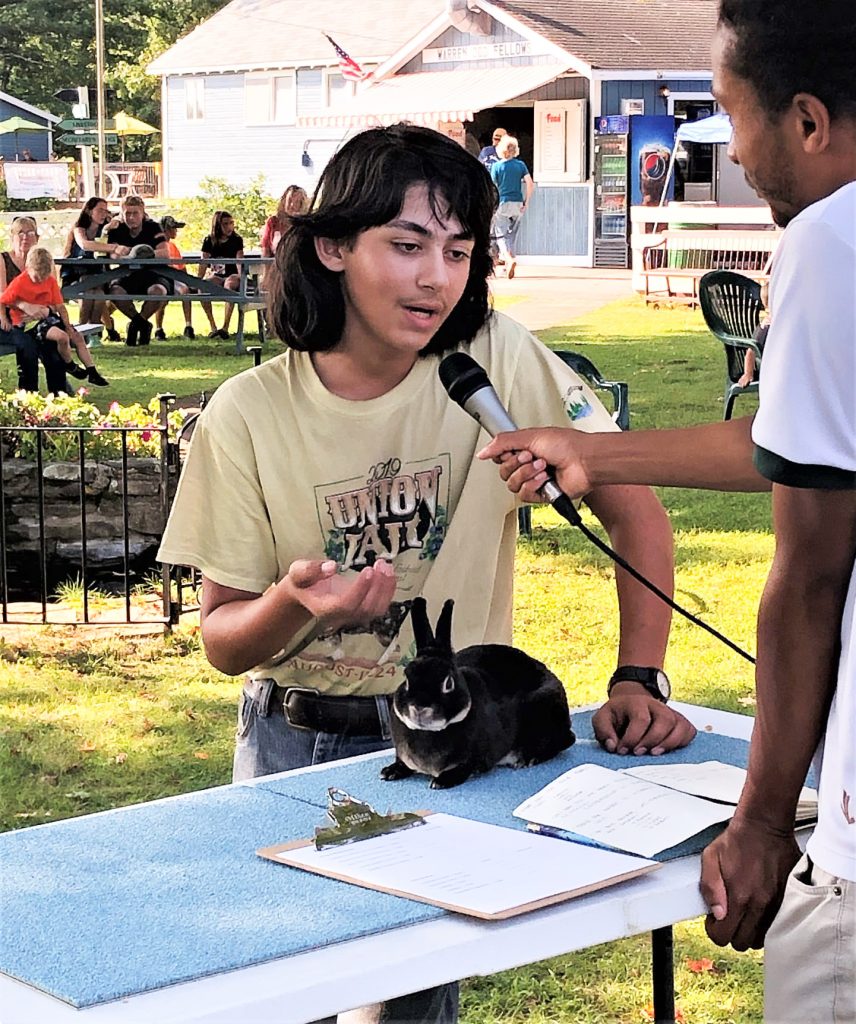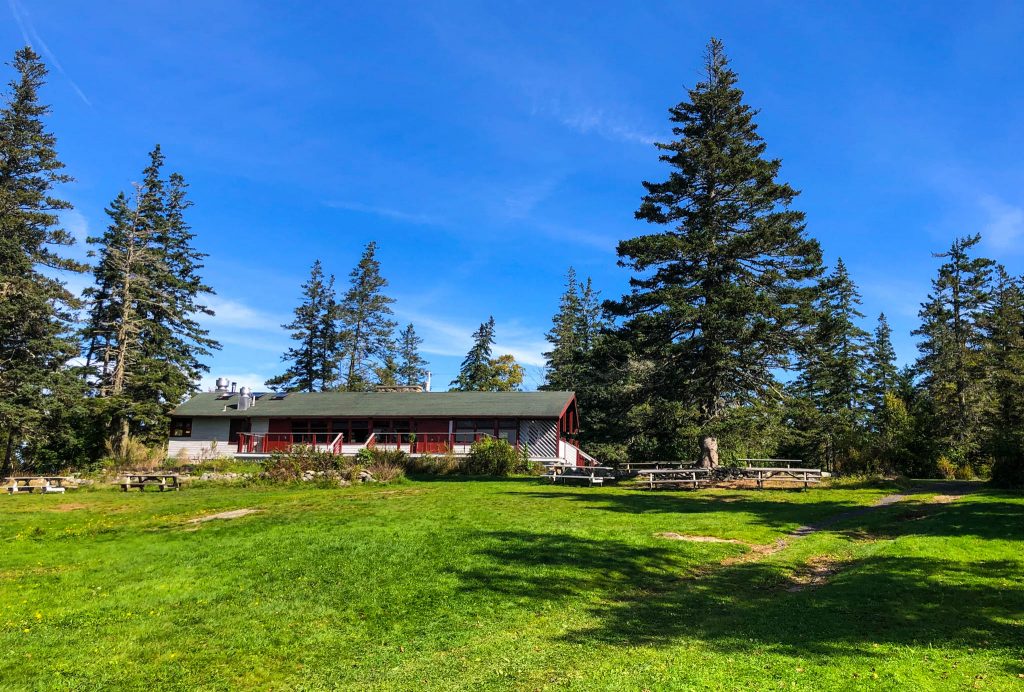2021 Annual Report
University of Maine Cooperative Extension Knox & Lincoln Counties
Putting university research to work in homes, businesses, farms, and communities for over 100 years.
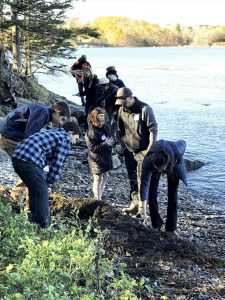
The University of Maine is an equal opportunity / affirmative action institution.
Download a print-friendly copy of the 2021 Annual Report.
Table of Contents
- Knox-Lincoln County Extension Association
- UMaine Extension Knox-Lincoln Counties Staff
- University of Maine Cooperative Extension seeks volunteers to serve on the Knox-Lincoln Counties Executive Committee
- President’s Message
- UMaine Extension Knox-Lincoln Counties Financial Resources
- 4-H Youth Development
- Parent Education
- Home Horticulture
- Commercial Agriculture
- Climate Change
- The County Extension Act
- Additional Resources
Knox-Lincoln County Extension Association
Executive Committee
- Aaron Englander, President
- Craig Currie, Secretary
- Jack Green, Treasurer
- Dawn Jones
- Wendy Roberts
- Gail Varga
- Brett Willard
- Nancy Wood
UMaine Extension Knox-Lincoln Counties
377 Manktown Road
Waldoboro, ME 04572-5815
207.832.0343 or 800.244.2104 (in Maine)
Fax: 207.832.0377
extension.knoxlincoln@maine.edu
UMaine Extension Knox-Lincoln Counties Staff
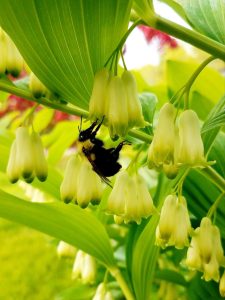
Extension Educators
- Mark Hutchinson
- Esperanza Stancioff
Professionals
- Ellen Baker
- Marylou Cook
- Jennifer Doherty
- Heather Elowe
- Gretchen Gee
- Ruth Griffin
- Ryan LeShane
- Hannah Pennington
- Brooke Sanborn
- Claudia Williamson
Community Education Assistants
- Cindy Rogers
- Liz Stanley
Administrative Specialist
- Pamela Doherty

University of Maine Cooperative Extension seeks volunteers to serve on the Knox-Lincoln Counties Executive Committee
UMaine Extension can only be successful with the help of county residents serving on the Executive Committee. Board members provide oversight and support to staff, as well as help promoting programs.
Knox-Lincoln Extension is one of the most active in the state providing a broad range of programs: 4-H youth development, assistance to commercial farmers and home gardeners, and in-home education for new parents.
Executive Committee members are asked to attend four two-hour meetings a year focusing on county programming, building maintenance, and finances. Members can certainly follow their interests and become more involved in any of the county programs.
If you’re interested in UMaine Extension Programs and giving back to your community, serving on the Executive Committee is a great place to be! For more information, please contact Ryan LeShane 207.832.0343, in Maine 800.244.2104 or email: ryanleshane@maine.edu.

President’s Message

Dear Knox-Lincoln Cooperative Extension Community,
Happy Summer! This is my second year as President of the Knox-Lincoln Cooperative Extension Association Executive Committee (KLCEA-EC). It has been an honor and a pleasure to work with all the staff, board members and volunteers involved with Knox-Lincoln Cooperative Extension (KLCE). As a farmer and educator at Maine Coast Heritage Trust’s Erickson Fields Preserve in Rockport, I deeply value the work of Extension. I get to see the benefits of the services offered by Extension daily, through our collaborations with Kids Can Grow, Master Gardener volunteers, and outreach with local farmers.
My wife and I have personally benefited from the Maine Families program that supports infants and their families. As new parents, we have found the Maine Families staff to be a huge help as we, like so many parents, are just figuring it out with each changing day. I am continually impressed by the breadth and depth of Extension’s work locally, throughout Maine, and beyond. From early childhood support to climate change initiatives, technical support for home gardeners and commercial farmers, Master Gardner volunteer programs, composting expertise at the state, national, and international level, and countless programs for local youth at Blueberry Cove Camp, local 4-H clubs, and other collaborating sites, KLCE never ceases to amaze me.
Thank you to all the staff, KLCEA-EC members, volunteers, and program participants who make Extension what it is: a community-based program that serves the greater good. Thank you to the University of Maine, and the Knox and Lincoln Counties’ tax funding that supports the facility and staff. Special thanks to two recent retirees from the KLCE office: Esperanza Stancioff, an Extension Professor and Climate Change Lead, and Cindi Staples, Administrative Specialist for the Parent Education Program and KL Extension office. Thank you to Cindi and Esperanza for your years of dedicated service to many local communities.
The KLCEA-EC oversees the budget, facility, vision, and program direction of KLCE. We are a volunteer committee always seeking new members who share a vested interest in the community well-being of Knox and Lincoln Counties. If you are interested in joining the EC or being involved in any capacity, please contact our office for more information.
Please enjoy this report and you may be as amazed as I am at all the great work going on at Knox-Lincoln Cooperative Extension.
Sincerely,
Aaron Englander
KLCEA Executive Committee President
Maine Coast Heritage Trust
Erickson Fields Farm and Program Manager
Rockport, Maine
UMaine Extension Knox-Lincoln Counties Financial Resources
The graph below illustrates the financial resources for programs offered, supported and managed from the Knox & Lincoln Counties office. Each year, Knox & Lincoln Counties tax dollars support UMaine Extension with physical office space, support staff salaries, office supplies, equipment and programming expenses.
As a unique partnership among federal, state and county governments, UMaine Extension uses funding from Maine counties and the University to match and leverage support from the United States Department of Agriculture, other federal grantors, state agencies and private foundations. Each UMaine Extension county office is also part of a statewide organization and the national Extension system.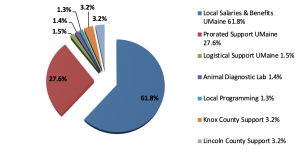
4-H Youth Development
Knox-Lincoln 4-H Club Program
- 36 youth members, 20 adult volunteers enrolled in 2021
- Union Fair was held in August and Knox-Lincoln 4-H did participate. With most clubs not yet meeting in person, an impressive showing of just over 100 projects were submitted for judging, mostly completed by members independently. Livestock shows were very nearly at normal participation levels as well.
- Two 4-H members from the Knox and Lincoln Counties 4-H program were inducted for a two-year term into the newly-formed Maine 4-H Youth Council. Council members, age 14-22, serve as liaisons between county and state 4-H programs, representing UMaine Extension at state and national events. This leadership program focuses on skill building in college and career readiness, networking, and mentoring.
Blueberry Cove Camp & Learning Center
- After a year without in-person summer camp programs in 2020, Blueberry Cove Camp & Learning Center in St. George hosted campers at a reduced capacity in 2021. The camp looks forward to a return to full-capacity camp programs in 2022.
- Camp Director, Ryan LeShane continued to work with the school system in St. George to offer in-school and after school learning experiences for K-8 youth.
Information: ryan.leshane@maine.edu
- 4-H Small Domestic Pet Show at Union Fair—Cindy Rogers photo
Parent Education
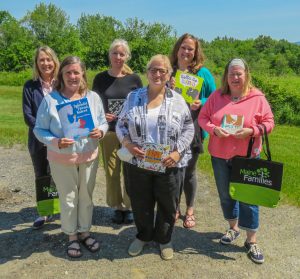
Maine Families Home Visiting Program
- As part of a statewide network of Maine Families Home Visiting Programs, our team of seven parent educators provided 1,437 home, virtual and phone visits to 173 families living in Knox, Lincoln and Sagadahoc Counties and the Cumberland Towns of Brunswick, Harpswell, Freeport, Yarmouth, Cumberland and Falmouth.
- Using the evidence-based Parents As TeachersTM Model, our team provided research-based information and caring support to fit each family’s needs and concerns, supporting parents in their role as their child’s first and most important teacher.
- 100% of families who completed our annual parent survey reported that Maine Families helped them understand their child’s growth and development and as a result of their participation in the program they feel better about their parenting. 96% of families reported their visitor helped them find useful services in their community. Maine Families continues to be a critical link for new and expectant parents, providing one-on-one support at no cost to eligible families, to promote maternal, infant and child health, foster healthy development and school readiness, and provide parenting support.
- This year we added Parent Testimonials to our website to highlight what parents are saying about Maine Families.
Information: jennifer.d.doherty@maine.edu
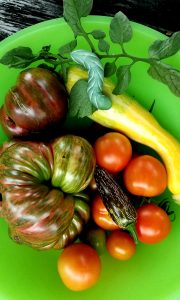
Home Horticulture
Master Gardener Volunteer Program
- The 2020–2021 Maine Master Gardener Volunteer training was conducted online with multiple county cohorts. Trainees received self-paced material on the Brightspace platform and connected virtually to specialists and industry experts on each topic.
- Master Gardeners volunteered following COVID guidelines during the growing season. They donated produce from their home gardens, joined food councils, and helped on growing and gleaning teams to support Maine Harvest for Hunger. They also wrote articles for Maine Home Garden News, designed pollinator-friendly gardens for public spaces, conducted remote gardening classes for organizations, and answered questions on social media using research-based fact sheets from our Garden & Yard website.
Home Horticulture
- The pandemic inspired many to take up gardening. UMaine Extension’s state-wide horticulture team developed multiple series of webinars and videos featuring sustainable best practices for beginning and more advanced gardeners.
- Over 400 client calls to Knox-Lincoln Extension included requests for soil tests, research-based information about plant diseases, browntail moth and other invasive animal and plant species, and advice about native plants for the Maine Landscape.
Information:elizabeth.stanley@maine.edu

Commercial Agriculture
Local Farm Markets
- The 2021 growing season continued to bring challenges to local farmers with the continuation of Covid-19 and changing weather patterns. Covid-19 again limited regional summer tourism, specifically impacting farmers selling to wholesale restaurant accounts. Direct-to-consumer sales at local farmers markets was strong. Knox-Lincoln Extension continued to assist growers with cropping issues including insect and disease diagnostics.
Crop Consultations
- Individual farm visits decreased in 2021, but virtual and electronic consultations remained strong and productive. A train-the-trainer program funded through the USDA farm bill for managing animal carasses was successfully completed after being postponed for almost two years. 29 stakeholders from five different states have now been listed as USDA compost subject matter experts.
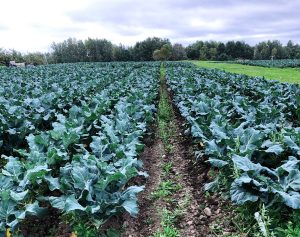
Field Research
- We were able to complete the second year of a Northeast Sustainable Agricultural Research and Education (SARE) tarping research project. Tarping is a practice of interest to many commercial organic vegetable and small fruit growers for weed and soil moisture control. University of Maine Cooperative Extension (Knox and Lincoln counties) received funding from the National Pork Board to determine the efficacy of compost to inactivate African Swine Fever virus (ASFv). ASFv is a highly contagious disease among pigs. Controlling an ASFv outbreak is important to maintain our food supply here in the United States.
Programs
- The Maine Compost School held a week-long program for medium- to large-scale commercial compost operations. The Maine State Prison Master Gardener Volunteer program had 14 participants. They produced food that was donated to the local food pantries of Knox and Lincoln counties.
Information: mhutch@maine.edu
Climate Change
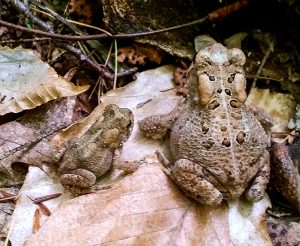
- The Maine Climate Change Adaptation Providers (CCAP) Network, developed in 2010 by UMaine Extension and Sea Grant, is a collaboration of 70 adaptation professionals committed to work together to build community resilience in Maine. Our website serves as a clearinghouse of Maine-specific climate adaptation guidance for municipal officials and others.
- As a subset of CCAP, the Collaborating Toward Climate Solutions project is an on-the-ground support formunicipalities in western Penobscot Bay. Our eight-person team has assisted communities including Camden, Rockland, Islesboro, and Rockland in evaluating risks and prioritizing investments through workshops and one-on-one support, including flood risk assessments and green infrastructure investment to combat impacts to stormwater infrastructure. Storymaps (web-based visual resources developed through a partnership with Bowdoin and UMaine Machias students) serve as tools to understand sea-level rise and living shorelines. Due in part to this work, these municipalities and others in our region are building support to position themselves for new federal funding through the efforts of the Maine Won’t Wait Climate Action Plan and process.
- Participants of all ages in the Signs of the Seasons (SOS) community science program experience meaningful learning opportunities while filling a gap in regional climate research by making and recording observations from a list of 22 indicator species. For the past two seasons we have seen increases in participation and a greater number of observations recorded. As spring is arriving, please join us for trainings being offered virtually and in-person. Find information and a new SOS Storymap developed by a program volunteer at Signs of the Seasons (SOS).

Congratulations Esperanza!
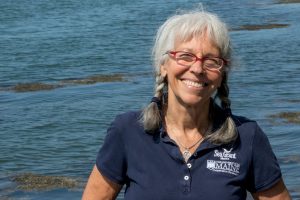
Esperanza Stancioff retired from the University of Maine Cooperative Extension and Sea Grant on April 1, 2022 after over 38 years of service.
Many of you have had the pleasure to learn from Esperanza, who is a gifted teacher. Her work over the years has been diverse and impactful. She joined Cooperative Extension as Statewide Water Quality Professional and retired as an Extension Professor of Climate Change.
Over the years she earned the reputation of being a willing and able collaborator on significant research and educational programs in coastal communities. She developed several projects that directly involved citizen science, including Maine Healthy Beaches and Signs of the Seasons. Esperanza’s work has been recognized broadly.
Her leadership and friendship will be truly missed at the Knox Lincoln County Extension office. Thank you Esperanza! We hope you find joy in your new adventures.
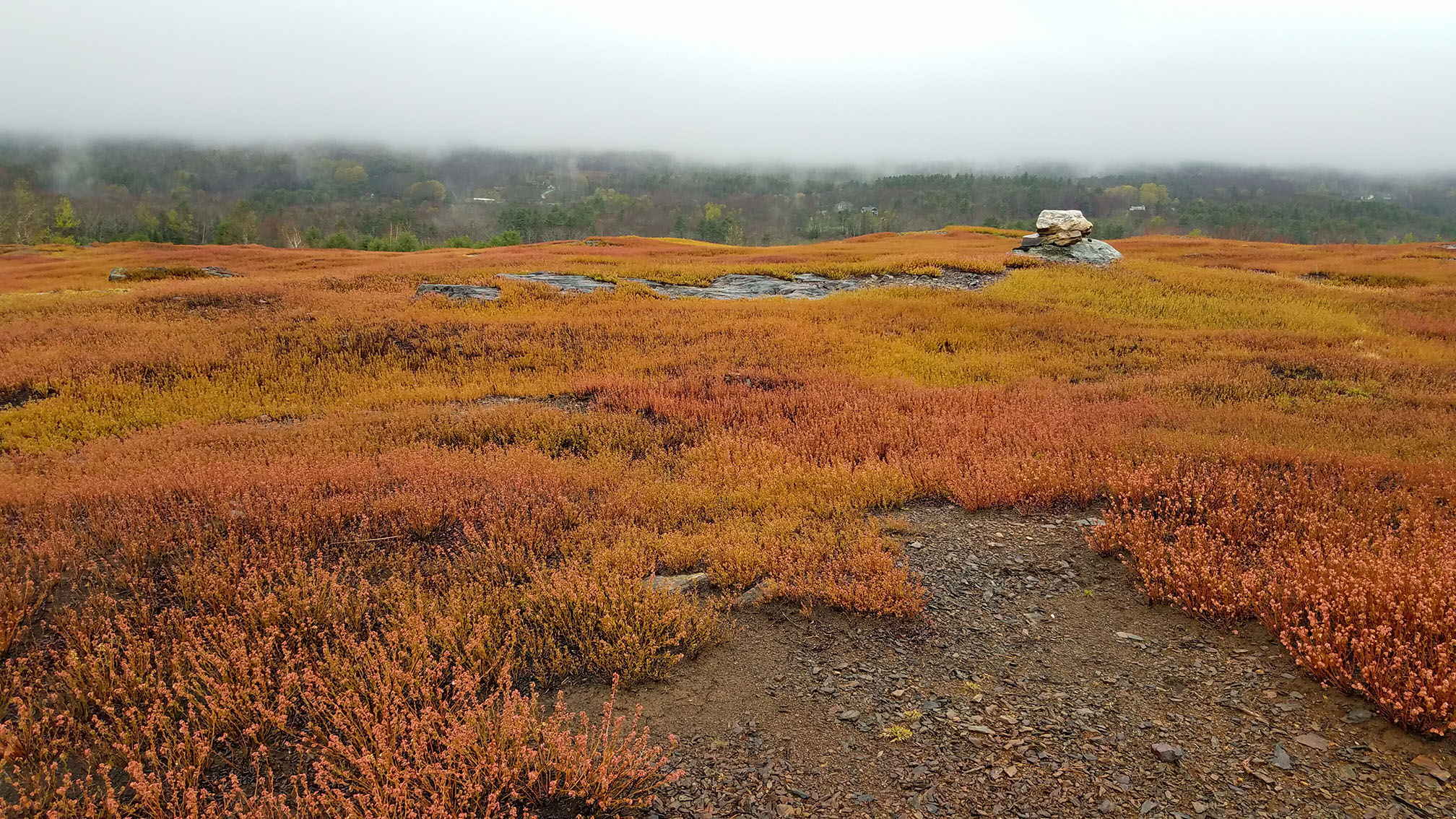
The County Extension Act
The County Extension Act explains the role of county government in funding local Extension offices.
Cooperative Extension work shall consist of the giving of practical demonstrations in agriculture and natural resources, youth development, and home economics and community life and imparting information on those subjects through field demonstrations, publications and otherwise. For the purpose of carrying out this chapter, there may be created in each county or combination of two counties within the State an organization known as a “county extension association,” and its services available to all residents of a county. The county extension is viewed as a unique and important educational program of county government. The executive committee of each county extension association shall prepare an annual budget as requested, showing in detail its estimate of the amount of money to be expended under this chapter within the county or counties for the fiscal year. The executive committee shall submit to the board of county commissioners on a date requested by the county commissioners, and the county commissioners may, if they deem it justifiable, adopt an appropriate budget for the county extension program and levy a tax therefore. The amount thus raised by direct taxation within any county or combination of counties for the purposes of this chapter shall be used for the salaries of clerks, provision of office space, supplies, equipment, postage, telephone, a contribution toward the salaries of county educators and such other expenses as necessary to maintain an effective county extension program.1
1Excerpted from Title 7, Chapter 7 of the Maine Revised Statutes, §191–§195.
Additional Resources
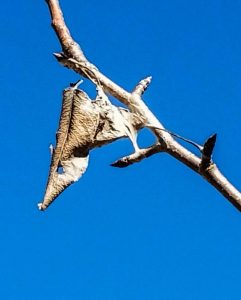
Garden & Yard Page for Home Gardeners
Learn more about Browntail Moth
University of Maine Cooperative Extension’s successful educational programs result from a federal, state, and county government partnership. Since 1919, when the Maine Legislature passed the County Extension Act, the University of Maine has been in all Maine communities with a county office whose operations are funded by county government. Our educational programs anticipate and respond to local and state needs and issues. We also communicate those issues and opportunities to UMaine faculty to influence their research and development plans.
©2022
The University of Maine Cooperative Extension Knox-Lincoln Counties office is an EEO/AA employer, and does not discriminate on the grounds of race, color, religion, sex, sexual orientation, transgender status, gender expression, national origin, citizenship status, age, disability, genetic information or veteran’s status in employment, education, and all other programs and activities. The following person has been designated to handle inquiries regarding non-discrimination policies: Director of Equal Opportunity, 101 Boudreau Hall, University of Maine, Orono, ME 04469-5754, 207.581.1226, TTY 711 (Maine Relay System).

